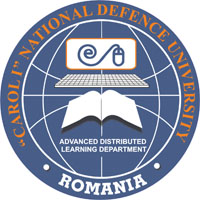EXPLORING THE POTENTIAL OF QR CODES IN HIGHER EDUCATION CONSIDERING THE ATTITUDES AND INTERESTS AMONG ROMANIAN STUDENTS
EXPLORING THE POTENTIAL OF QR CODES IN HIGHER EDUCATION CONSIDERING THE ATTITUDES AND INTERESTS AMONG ROMANIAN STUDENTS
Author(s): Irina Albăstroiu, Mihai FeleaSubject(s): Education
Published by: Carol I National Defence University Publishing House
Keywords: QR codes; mobile tags; mobile learning; higher education
Summary/Abstract: QR (Quick Response) code is the trademark for a two-dimensional barcode used to encode and decode data at a rapid rate. QR codes are readable by smartphones, digital tablets, and other electronic devices with cameras and can be scanned to provide access to websites, information and applications. The use of these codes for various purposes is currently a popular topic in both research and in practical applications. Higher education is also poised to benefit from the momentum created by the uptake of QR codes in the corporate world and popular culture. Briefly, the potential of QR codes in education is related to their ability to allow learners to use their mobile devices to link to specific information quickly and easily. Our paper summarises previous research regarding the use of QR codes in higher education and presents ways to use these codes as a support for expanding and delivering resources to students, for interactive discovery and for making learning more engaging for students. Also, the findings of a research among students from The Bucharest University of Economic Studies will be exposed in our paper. The objective of the survey was to identify students' readiness towards the use of mobile devices for learning, their technical possibilities and their willingness to use QR codes in learning context and their perceptions regarding the usefulness of such instruments in some specific learning situations. Taking into consideration the research findings, our paper will also offer recommendations for Romanian students and teachers regarding the use of QR codes.
Journal: Conference proceedings of »eLearning and Software for Education« (eLSE)
- Issue Year: 11/2015
- Issue No: 01
- Page Range: 196-201
- Page Count: 6

